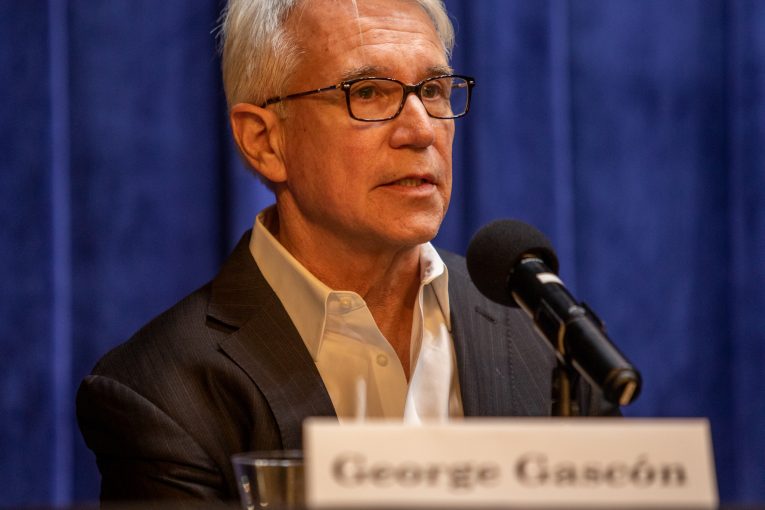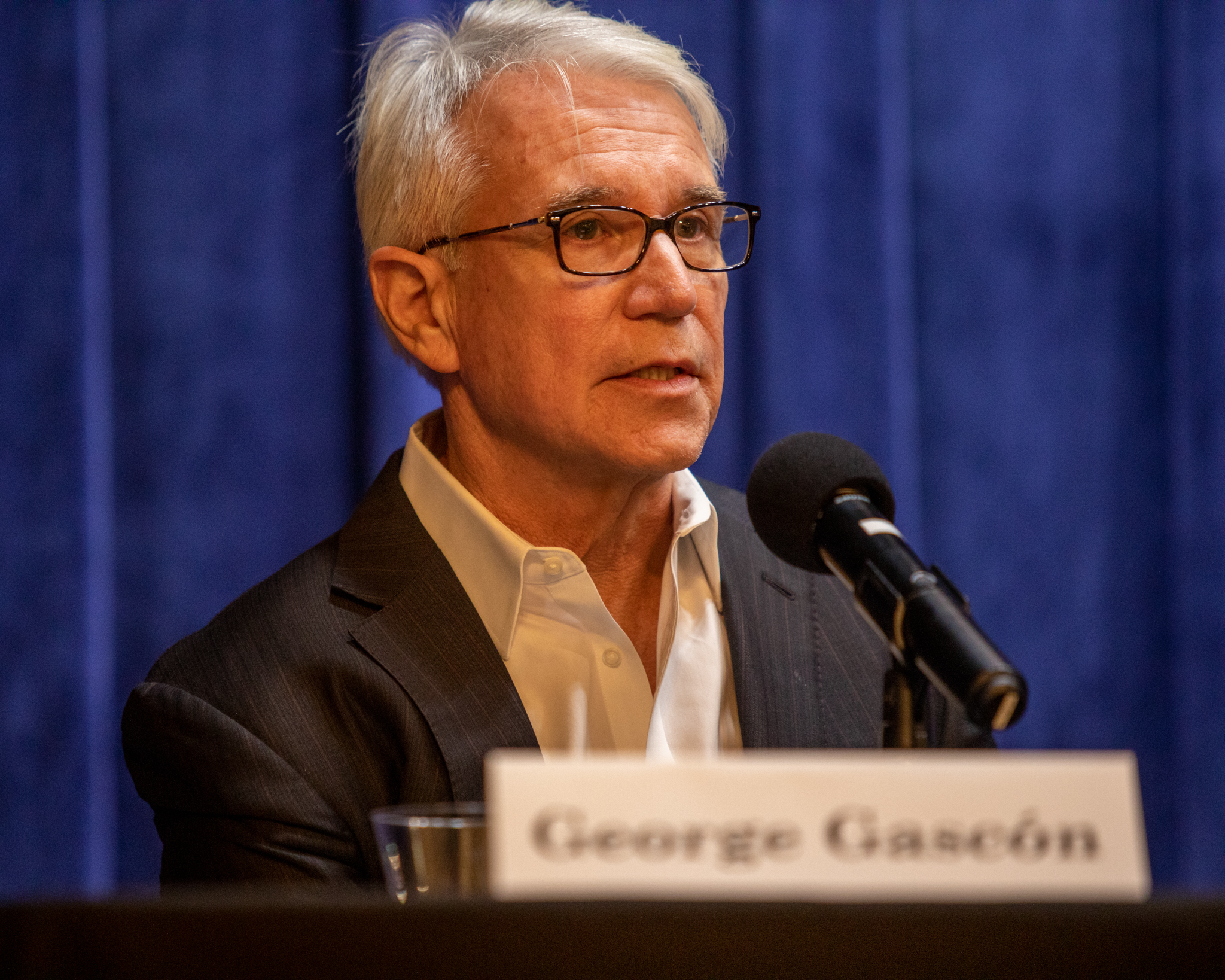

Criminal justice leaders urge the California Supreme Court to review decision undermining DA’s directive to limit use of sentencing enhancements that harm community safety and have a racially disparate impact
By David M. Greenwald
San Francisco, CA – George Gascón was barely in office when the Association of Deputy District Attorneys of LA County challenged a key reform that would prevent his prosecutors from continuing to seek sentencing enhancements. The preliminary injunction was upheld in February by Judge James Chalfant.
He wrote, “The Special Directives require prosecutors to violate California law, their oaths of office, and their ethical and professional obligations.”
The trial court, in the case of Nazir v. Los Angeles, denied a motion from the Los Angeles County District Attorney’s office to dismiss and withdraw sentencing enhancements filed under the previous district attorney.
Gascón’s office has now challenged that decision, and the California Supreme Court is considering whether to review that ruling.
On Thursday, a bipartisan group of 69 current and former elected prosecutors and Attorneys General—including California District Attorneys Chesa Boudin and Diana Becton; two former Los Angeles District Attorneys; and current Attorneys General Hector Balderas (New Mexico), Keith Ellison (Minnesota) and Karl Racine (District of Columbia)—filed an amicus letter brief in the California Supreme Court in support of review in Nazir v. Los Angeles.
The letter argues, according to a release from Fair and Just Prosecution on Thursday, “the trial court’s decision improperly infringed on policy decisions entrusted to the elected DA, George Gascón, and that are integral to the exercise of his prosecutorial discretion. Amici emphasize that Gascón’s efforts to end the use of sentencing enhancements reflect the exact platform that he was elected to carry out, which included his promise to roll back harsh prosecutorial practices that contributed to excessive incarceration rates, particularly for people of color, and did little to improve public safety.”
“George Gascón was elected with a mandate to transform the criminal legal system in Los Angeles County,” said Miriam Krinsky, Executive Director of Fair and Just Prosecution (the organization that organized the letter brief) and a former federal prosecutor in Los Angeles, as well as the former President of LA’s Ethics Commission.
She said, “The trial court’s ruling reflects the latest attempt by those committed to failed ‘tough on crime’ policies of the past to infringe on prosecutorial discretion and usurp the will of the people. The foundational sanctity of separation of powers and prosecutorial discretion cannot be violated simply because the court or others disagree with the voters’ and the elected DA’s approach to the pursuit of justice.”
In the letter, they write, “This case merits review so the Court can clarify the authority of elected prosecutors to implement new and lawful criminal justice policies aimed at unwinding decades of mass incarceration that have adversely impacted people of color. The trial court’s decision, if left intact, will set a dangerous precedent and undermine well settled discretion uniquely vested in our nation’s elected prosecutors.
“And it will erode an elected prosecutor’s ability to craft and implement officewide policies that ensure that the fortuity of an individual prosecutor will not significantly impact the outcome of a case and the treatment of similarly situated individuals who come into the justice system.”
In the letter brief, amici underscore the fundamental obligation of elected prosecutors to carry out their role in ways that take into account the interests of justice and the prudent use of limited resources.
Fair and Just Prosecution notes, “The ability of the elected prosecutor to decide which cases to try, what offenses to charge and what penalties and sentences to seek – including whether to pursue available sentencing enhancements – is within the purview of prosecutorial discretion ‘enshrined in separation of powers principles included in most state constitutions, including California’s.’”
“As an elected Attorney General and prosecutor, I am accountable to my community,” said Minnesota Attorney General Keith Ellison, a signatory to the letter brief. “My community entrusted me to use my discretion to pursue justice, and DA Gascón’s community similarly has put their faith in him to make the tough decisions about how and when to prosecute cases. No court should have the ability to infringe on his discretion and subvert the will of the people.”
The amicus letter brief explains “that DA Gascón is just one of the many elected prosecutors across the country who are declining to prosecute classes of alleged offenses or refraining from seeking certain sentences as matters of office policy.”
While the trial court denied the motion on the grounds that discretion must be based on an individualized assessment, amici stress that centralized office policies—especially in a large office where the case outcome should not be based on the fortuity of the individual prosecutor—are critical and fully appropriate.
They argue, “There is no constitutional or legal doctrine that permits the court to subvert these decisions simply because they are ‘blanket’ policies with broad application, rather than the result of a case-by-case analysis. The discretionary determinations that underlie them are no less reasoned, thoughtful, or valid than those that are specific to the precise facts of a given case.”
“For many decades, the courts have stood by and respected prosecutorial discretion when elected prosecutors sought harsh sentences that studies show disproportionately impacted communities of color; there is no reasonable explanation as to why the judicial branch should erode that separation of powers now and intrude on decisions clearly within the district attorney’s purview,” said former Los Angeles County District Attorney Gil Garcetti, a signatory on the letter brief.
He added, “The people of Los Angeles elected DA Gascón based on his commitment to end the practices that led to mass incarceration, including the use of harsh sentencing enhancements. He should not be prevented from carrying out this vision for his community.”
“We know that sentencing enhancements have fueled mass incarceration without making our communities safer, and DA Gascón was elected by his community to chart a new path forward,” said Erwin Chemerinsky, Dean of the University of California at Berkeley School of Law and one of the counsel who assisted with the letter brief.
He added, “If upheld, the trial court’s decision would set a dangerous precedent of allowing courts to intrude into the authority uniquely vested in elected prosecutors. The California Supreme Court should review this case and ensure that the discretion granted to district attorneys in our state’s constitution is protected and upheld.”
Read the letter brief and see a complete list of amici here.
—David Greenwald reporting
To sign up for our new newsletter – Everyday Injustice – https://tinyurl.com/yyultcf9
Support our work – to become a sustaining at $5 – $10- $25 per month hit the link:
